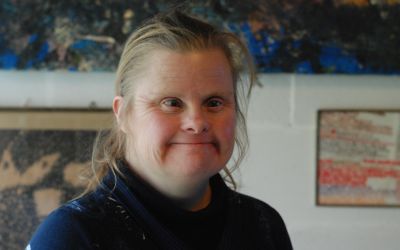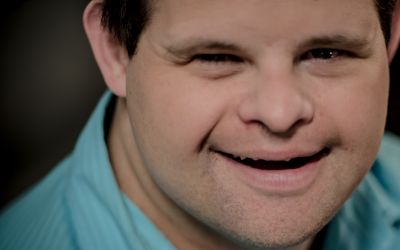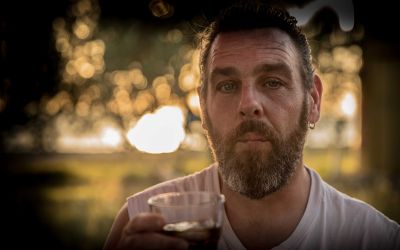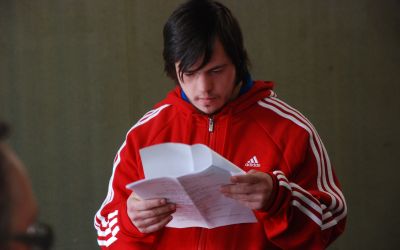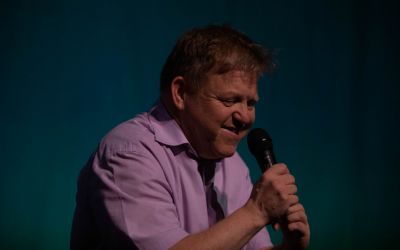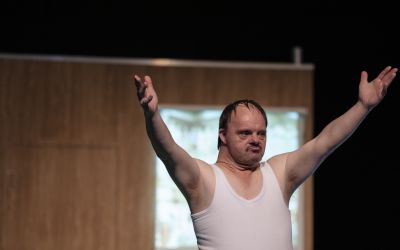The starting point of our working process was the idea showing a scene full of Gods, because we liked the idea to show the players of Theater Stap as Gods.
Today, God is dead, they say. On the other hand we live more than ever with a multiplicity of Gods in our society. A lot of people are living close to their own Gods, and we’re confronted with them every day, in our daily life, or on television.
But in this production we don’t want to show the Gods we see nowadays in all the media, and in our streets: Gods of guilt, of anger and intolerance. Instead we play the Gods of farts, sputter, hope and orthopedic shoes. Their stories are inconsequent and eclectic. the way they are, doesn't fit in a strong pattern, they are wild and anarchic. And showing this kind of Gods, played by the players of Stap, is probably the big main theme of the play.
Because we find it a very comforting thought, thinking of these Gods. We show heaven, We show people who need Gods and Devils, people who create Gods to comfort themselves, because they are in doubt, scared, and they find support in the melodies, stories and rituals.
In 4 : 3 Gods tell their stories and truths. They present their rituals and dances. They sing their songs.
credits
by and with Timeau De Keyser, Simon De Winne, Guy Dirken, Ann Dockx, Seppe Fourneau, Jan Goris, Luc Loots, Hans Mortelmans, Nancy Schellekens, Jason Van Laere, Rik Van Raak, Marc Wagemans
composition Ruben Desiere, Seppe Gebruers, Niels Van Heertum
music and sound Ifa Y Xango
scenography Tibaldus en andere hoeren, Johan Daenen, Simon Van Den Abeele
technical support Erick Clauwens
press
De Morgen 2012
4 : 3 is an ode to contingency. An ode to what arises on stage and can only arise on stage. To the emptiness that inevitably results from this choice of form. To the silence of an actress having lost her lines, the difficult breathing of a boy with Down syndrome. At the same time, it is an ode to the individual. By showing the divine, the artists particularly make the spectators notice a multicolored group of human beings.
Tibaldus and Theater Stap introduced me to an other way of watching, seeing those who are different and don’t exactly fit in one box. This way of watching perhaps makes me feel unconfortable, but it also injects lots of new and relevant questions into my writing. And aren’t these questions the subjects ʿweʾ, the younger generation, should work with? (Charlotte De Somviele)











